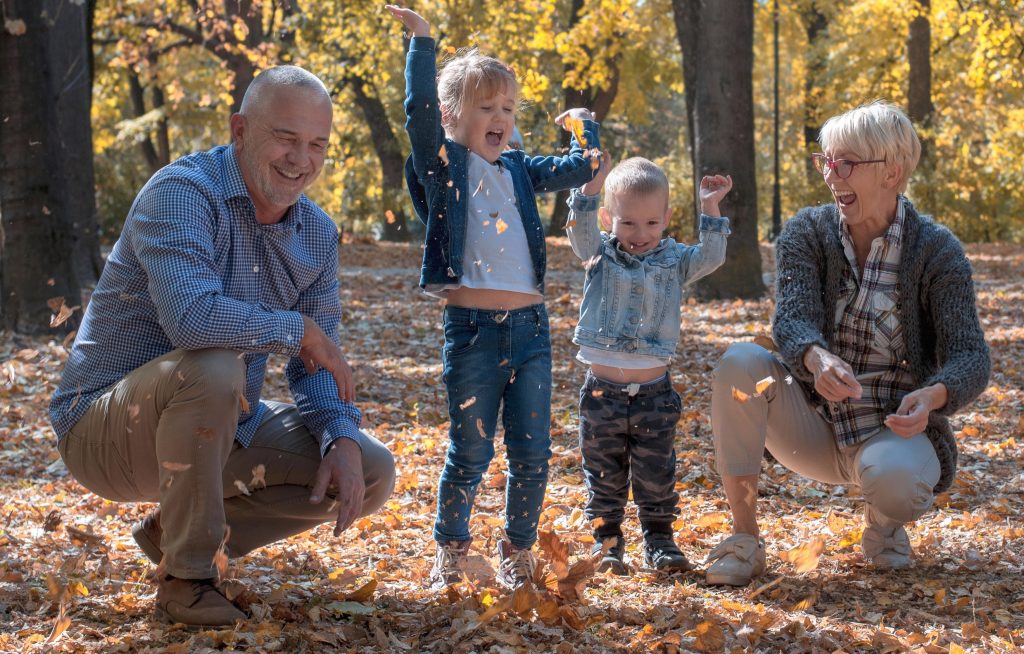Having just sent my youngest off to Elon University in North Carolina, I’ve been reflecting on their time at home. In particular, when my wife and I have a cross word with one of our daughters, it wasn’t uncommon for them to secretly get on their cell phones to dial Grandma from the privacy of their bedroom to complain. They get to vent about what rotten parents Patti and I have become – and how we are being so unfair or otherwise overly demanding of them.
Imagine asking your daughter to pick up that wet towel off of the floor of her room for the hundredth time. How unreasonable!
But having caring and loving grandparents is good. It balances out the family dynamic. Grandparents tend to provide a broader, calmer perspective. They’re not in the heat of the battle, and they’ve been through those battles before.
So it’s interesting for me as an estate-planning attorney to see how, in their estate plans, grandparents treat their grandchildren. A predominant school of thought is to leave everything to the children and let them take care of the grandchildren. Sometimes, however, the grandparents want to include the grandchildren directly in the estate plans.
And here’s where it gets interesting. Suppose that son Liam has two children and the other son Noah has three. So if Grandpa leaves each grandchild $10,000, then Liam’s side of the family receives an extra $20,000 of bequests, while Noah’s side of the family receives $30,000. So is that unfair?
It’s all how you look at it. If you are trying to treat Liam and Noah equally, you could argue that Noah is getting more. But is he really? My experience with these issues is that grandparents tend to change their perspective on treating grandchildren “equally” over time. Allow me to explain.
While the grandchildren are young, (from birth through high school or college age) the grandparents tend to think of the grandchildren as extensions of their children. In other words, Noah’s children should only get $6,667 each while Liam’s children each get $10,000 so that both sides (Liam and Noah) are treated equally – a total of $20,000 to each “side” of the grandchildren.
As the grandchildren exit college, however, the grandparents tend to think of them as their own individual unit with no difference as to whether they are offspring of one son or the other. In other words, as the grandchildren enter young adulthood, anecdotally I would tell you that in my experience the $10,000 bequest to each grandchild doesn’t seem to bother Grandma and Grandpa as much. They think of their grandchildren more as independent young adults and less as extensions of one side of the family or the other.
It gets trickier when there are stepchildren involved. Blended families are much more common today than they were a generation or so ago. And in many cases, the step-grandparents have a close relationship with their step grandchildren. Here, the grandparents have to make a decision whether the step grandchildren should receive anything at all – or if they do whether they receive the same amount as the biological grandchildren.
Complicating matters further is that many don’t understand how the law works. When you leave amounts to a child per stirpes, and if that child predeceases you, then unless you have a specific provision to the contrary, that deceased child’s stepchildren do not receive amounts from your estate. If, on the other hand, your child has legally adopted the step-grandchildren, then they are no longer step-relations. Adopted grandchildren are treated under the law the same as biological grandchildren.
You can decide to treat step-grandchildren (who have not been adopted) the same as biological grandchildren by so stating in your will or trust. But you actually have to make an express statement in your estate planning documents to have them treated that way.
Often grandparents don’t know what they should do about step-grandchildren. Should they be treated the same as biological grandchildren? Should they be treated half as well? Should they not be mentioned at all? Will their child be offended if their stepchildren are not provided for the same way as the biological grandchildren are treated?
There are no right or wrong answers. Each family is different. The relationship between the grandparents, the parents and the grandchildren will usually dictate how this all plays out. I usually encourage my clients to talk to their children to get their feelings on these matters. But ultimately it is the decision of the client what they want to put into their will or trust. The best way to approach these issues is to look into their own hearts to decide what’s best for them and their families.
Because ultimately how you decide to treat your family – blended family and all – in your estate plan is how you feel about those who are close to you. Whether you have a large estate or a more modest estate, it really doesn’t matter.
What matters most are the relationships that you enjoy through the years. Because I know that when my kids feel upset with Patti and me – our parents feel warm and special that our kids want comfort from them.
And all of that means more than anything a will or trust can say.
©2023 Craig R. Hersch. Learn more at www.floridaestateplanning.com
